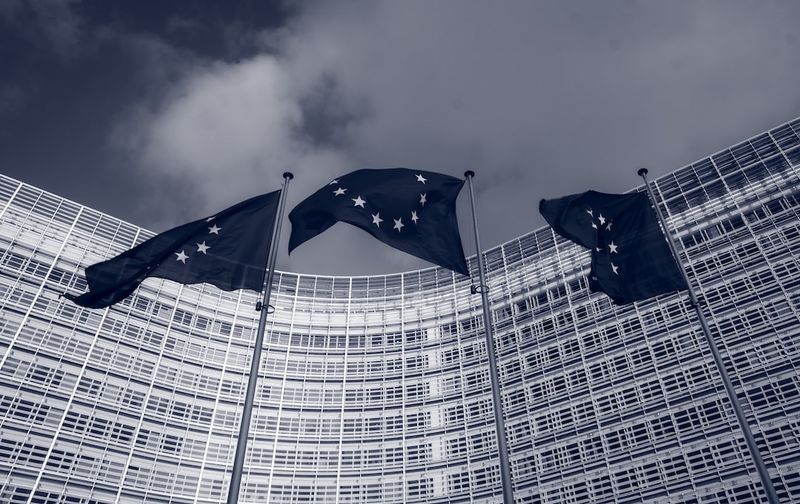Ubisoft Faces Backlash Over Closure of “Unused” Accounts
Ubisoft‘s recent decision to close “unused” accounts and disable access to purchased games has sparked outrage among gamers and industry observers. The move, which the company claims is necessary to comply with the General Data Protection Regulation (GDPR), has raised concerns about the rights of gamers and the reliability of digital game ownership.
GDPR and the Closure of “Unused” Accounts
Under the GDPR, companies are required to protect the personal data of their users and have a legitimate reason for processing that data. Ubisoft cites the GDPR as the justification for closing inactive accounts, stating that it is necessary to comply with local data protection legislation. According to the company, this measure only applies to accounts that are believed to remain unused.
While the GDPR has undoubtedly strengthened data protection rights for individuals, the closure of “unused” accounts raises questions about the extent to which companies can restrict access to purchased content. Critics argue that Ubisoft‘s approach disproportionately penalizes gamers who may not have logged into their accounts for extended periods, potentially resulting in the loss of access to games they have paid for.
The Issue of Digital Rights Management (DRM)
The closure of “unused” accounts also highlights the broader issue of Digital Rights Management (DRM) and the challenges it poses to the preservation of digital games. In a digital ecosystem, companies have the power to decide when and how to terminate user accounts, leaving little recourse for affected users. This raises concerns about the vulnerability of digital game collections and the potential loss of purchased content.
Ubisoft‘s recent action underscores the need for a robust and transparent approach to DRM, one that balances the interests of both companies and consumers. While companies have a right to protect their intellectual property and combat piracy, it is essential to ensure that legitimate users are not unfairly penalized or left without access to content they have purchased.
Preserving Video Game History
Furthermore, the closure of “unused” accounts is a stark reminder of the precarious state of video game preservation. According to the Video Game History Foundation, in collaboration with the Software Preservation Network, 87% of classic video games released in the United States are considered “critically endangered.” The closure of user accounts and the potential loss of purchased games exacerbate this problem, jeopardizing the preservation of digital gaming heritage for future generations.
Editorial: Striking a Balance between Regulatory Compliance and User Rights
In light of Ubisoft‘s decision and the broader issues it raises, it is clear that there is a need for a more nuanced approach to account management and DRM in the gaming industry. While it is important for companies to comply with data protection regulations such as the GDPR, they must also consider the rights and expectations of their users.
Companies like Ubisoft should prioritize finding solutions that strike a balance between compliance with regulatory requirements and ensuring that gamers can retain access to their purchased games. This could involve implementing more flexible account management policies that allow users to easily reactivate their accounts after extended periods of inactivity, without the risk of losing access to their content.
Furthermore, industry-wide discussions on DRM and the preservation of digital games should take place. Gaming companies, preservationists, and regulators should collaborate to develop standards and best practices that protect both the rights of companies to enforce DRM measures and the rights of gamers to access their purchased content.
Advice for Gamers
In light of the uncertainty surrounding account closures and digital game ownership, gamers should take proactive steps to protect their investments and ensure they can continue to access their purchased content.
Regularly Log Into Your Account
To prevent the closure of “unused” accounts, it is crucial for gamers to log into their accounts regularly. By doing so, users can demonstrate their engagement and avoid falling into the category of “unused” accounts that are targeted for closure.
Backup Your Purchased Games
In addition to regularly logging into your account, it is advisable to back up your purchased games whenever possible. This involves downloading and storing game files locally, so that even if your account is closed or inaccessible, you still have a copy of the game available for future use.
Advocate for Consumer Rights
Gamers can join forces with advocacy groups and organizations that are championing consumer rights in the gaming industry. By raising awareness and supporting initiatives focused on maintaining user access to purchased content, gamers can contribute to the ongoing dialogue about the future of DRM and digital game ownership.
Conclusion
Ubisoft‘s decision to close “unused” accounts has ignited a broader debate about the relationship between companies, gamers, and digital game ownership. As the gaming industry continues to evolve, it is crucial for companies to find a balance between regulatory compliance and user rights, while also preserving gaming history for future generations. Gamers, too, have a role to play in protecting their investments and advocating for fair and reliable access to the games they have purchased.

<< photo by lalesh aldarwish >>
The image is for illustrative purposes only and does not depict the actual situation.
You might want to read !
- “The Messi Phenomenon: Tracking Lionel Messi’s Journey with Inter Miami CF in 2023”
- The U.S. Women’s National Soccer Team: Off to a Strong Start in the World Cup
- USWNT Dominates Vietnam in Impressive Victory: Match Recap, Stats & Standings
- Ubisoft’s Crackdown on Inactive Accounts Sparks Controversy
- The Impact of Madden NFL 24 Ratings on the Philadelphia Eagles: An Editorial Exploration
- The SoCal Sensation: Tien’s Remarkable Rise in the World of Tennis
- “Exploring the Intimacy and Impact of Cillian Murphy and Florence Pugh’s ‘Oppenheimer’ Sex Scenes”
- Exploring the Return of Thrawn in the Latest Star Wars: Ahsoka Trailer
- The Struggle of Online Gaming: Diablo 4 Server Outages




